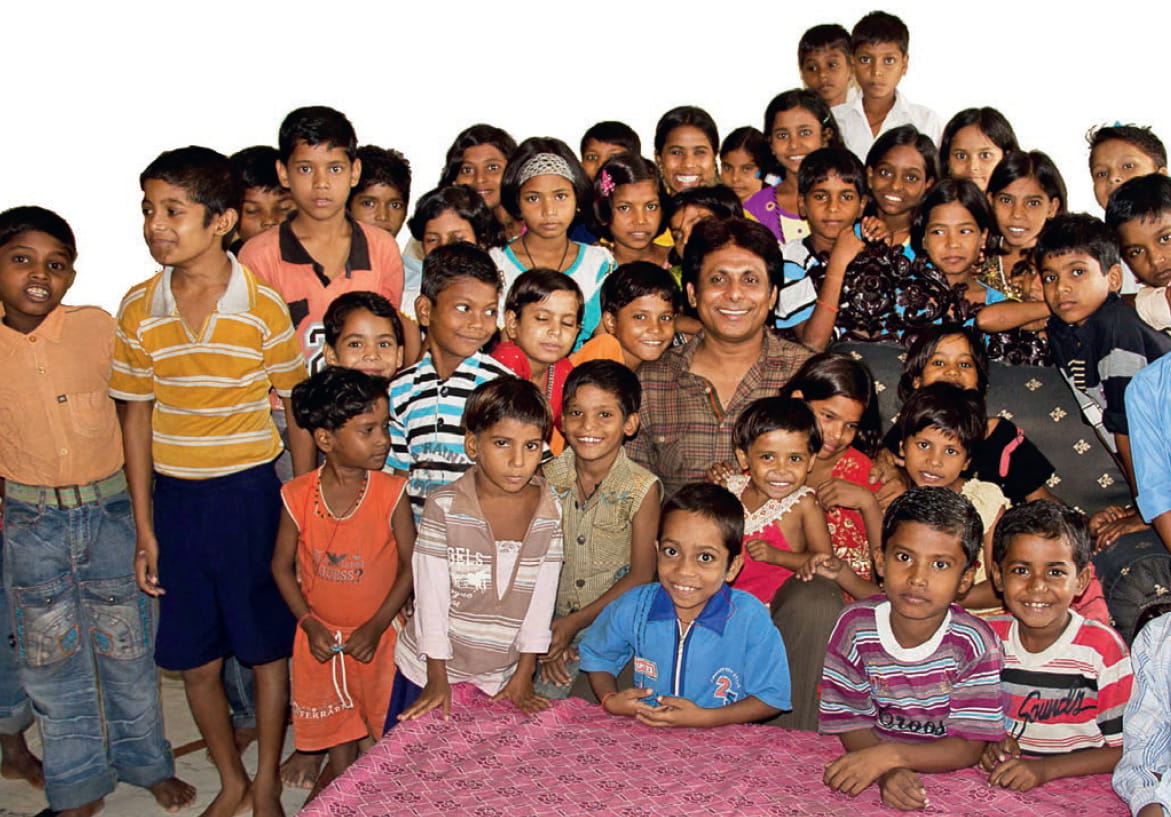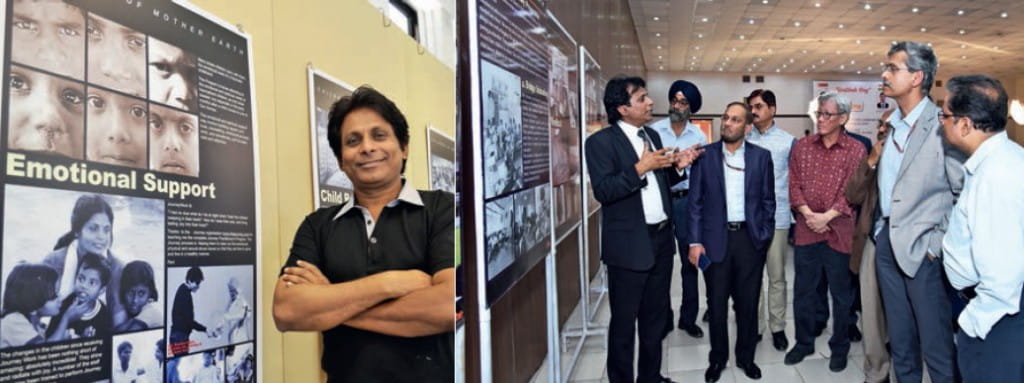Stories > A Family Affair
A Family Affair
A boyhood dream to help street children in India led Ravi Rai Manas to spend his life’s savings to take them under his wing.
BY TERESE TAY
PHOTOS COME; TABLA/ SPH
ne could say that ex-civil engineer Ravi Rai Manas is a lucky man.
Not many people can say they know their life’s calling, but for the 56-year-old, it was sealed when he was a mere 10-year-old. “Even as a young boy, I knew I wanted to live with, raise and mentor poor street children in India,” he says.
When Manas was a child, he would follow his parents on visits back to their ancestral village of Pharsar in Uttar Pradesh. The state is one of India’s poorest and most underdeveloped.
There, he saw dozens of poor children, from as young as four years old, begging or working in the streets and railway station. Befriending some of them easily, as children do, he shared whatever he had – food, an extra sweater or a toy. The young boy decided to return one day to help them.
“We Cannot Make Assumptions Or Judgements Of The People We Are Trying To Help.”
Ravi Rai Manas, Founder, Children Of Mother Earth
After completing primary school in Singapore, Manas went on to finish high school and university in India, graduating with a civil engineering degree. He returned to Singapore for nine years, where he scrimped and saved from his engineer’s salary. When he left in 1998, he had $300,000 and an apartment that earned him about $2,000 in monthly rental income.
Using his personal savings, Manas founded non-profit organisation Children of Mother Earth (COME) in Pharsar, where he would befriend poor street children, including runaways, orphans and victims of trafficking. He provided the children with clothing, food, shelter and, most importantly, education.
His aim was for the beneficiaries to become role models for others while, at the same time, uplifting themselves from poverty. COME also reunited lost or runaway kids with their parents, helping families work through financial or other problems along the way.
Today, COME runs four boarding facilities, which are being refashioned into academies, with teachers conducting vocational classes and workshops for those in their late teens, in addition to their core caretaking function. Manas estimates he has helped 2,000 children in various ways to date.
HURDLE TO HELP
Though he was no stranger to Pharsar, doing humanitarian work there was not without its initial challenges – from within and without. An external challenge was his surface-level understanding of a culture that he had thought of as his own.

Even as a young boy, Ravi Rai Manas (centre) knew he wanted to live with, raise and mentor Indiaʼs poor street children.
“When I first started doing COME work, there was a 13 or 14-year-old girl who was about to be married off in a poor village that I visited regularly. I counselled the parents and they agreed to let her get an education first,” he recalls.
After returning from a trip home to Singapore, he was devastated to find out that the girl was married off.
“I tried to find out from the parents why they arranged for her marriage when they had agreed with me that it was better to wait,” he explains.
“The girl’s grandmother chided me and told me that I only saw one part of the issue. The other part had to do with the girl’s security. In poor villages, girls can be easily taken advantage of, especially when the adults are busy trying to make ends meet. In their view, the girl had secured her future and safety by marrying.”
“Come Also Reunited Lost Or Runaway Kids With Their Parents, Helping Families Work Through Financial Or Other Problems Along The Way.”
It was a revelation to him, Manas says. Although he is Indian by descent and has lived in the country for many years, small but critical cultural differences still existed. He learnt that it was important to spend time to understand others. “We cannot make assumptions or judgements of the people we are trying to help,” he says.
Another challenge he had was internal. “At first I didn’t want to accept any help, especially in the form of donations. I thought that I had enough savings.”
But after some three years, money started running out. Manas was also worried for his and his family’s reputation should he fail.
“Although many people wanted to donate money, I was worried about what people thought of me. I was afraid they would think I wasn’t successful,” he says.
A stint as a volunteer helping victims of the 2001 Gujarat earthquake made him realise that having funds would actually allow him to help more people. That was when he began to accept donations.
Currently, COME receives contributions from donors in Singapore and the United States, as well as the Indian government.
Manas also managed to connect with local doctors to provide free healthcare for the children. These include Dr Sidharth Agarwal, who performs consultations and procedures, such as the cleaning and closing of infected open wounds, on the children associated with COME.
According to him, their partnership has been smooth sailing. “There are a lot of differences between India’s and Singapore’s concept of time and efficiency, but they do not apply to us, as we work in a private institution without a lot of bureaucracy to complicate matters,” he shares.
“What Ravi Has Done Is To Provide A Life-changing Opportunity For These Children To Achieve Something They Never Would Have Thought Possible.”
Ben Cheong, Founder, Magical Light Foundation
WORK IN PROGRESS
Manas has since won multiple awards for his work, but says he won’t stop. Seeing the children grow up into adults who give back to society is his motivation.
“Now, many of the older children handle things like accounting for the centres. They also help mentor the younger kids. Others are pursuing their own careers such as in teaching and animation,” he says proudly. “And many have married too. I have eight ‘grandchildren’ now!”

From Left: Manas at his exhibition held in Singapore to garner support for Children of Mother Earth; 2018 was a landmark year for Children of Mother Earth, as it marked 20 years of its existence.
Singaporean Ben Cheong, Manas’ friend, COME volunteer and supporter, attests to the difference that the organisation has made in the lives of the poor children.
“I have travelled all over Asia, and I have to say that the deeply entrenched caste system in India is a big challenge for anyone from a lower caste to rise up,” he says.
“What Ravi has done is to provide a life-changing opportunity for these children to achieve something they never would have thought possible.”
Cheong, who runs his own charity, Magical Light Foundation, says that while not every “graduate” of COME’s programme is able to help out at the centres, all the kids remain close to Manas.
Twenty years ago, Manas had inscribed on the exterior of COME’s first headquarters: “Humanity is our religion, Earth is our motherland.” The saying is ever more pertinent today. “To live humbly means to help each other, our fellow humans. We must think of ourselves as one country, one family,” he says.
